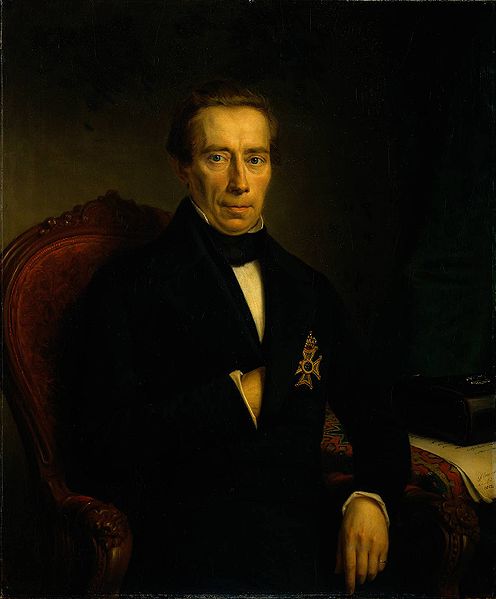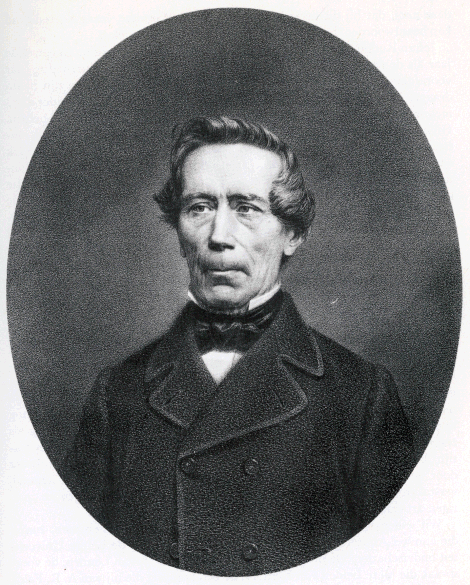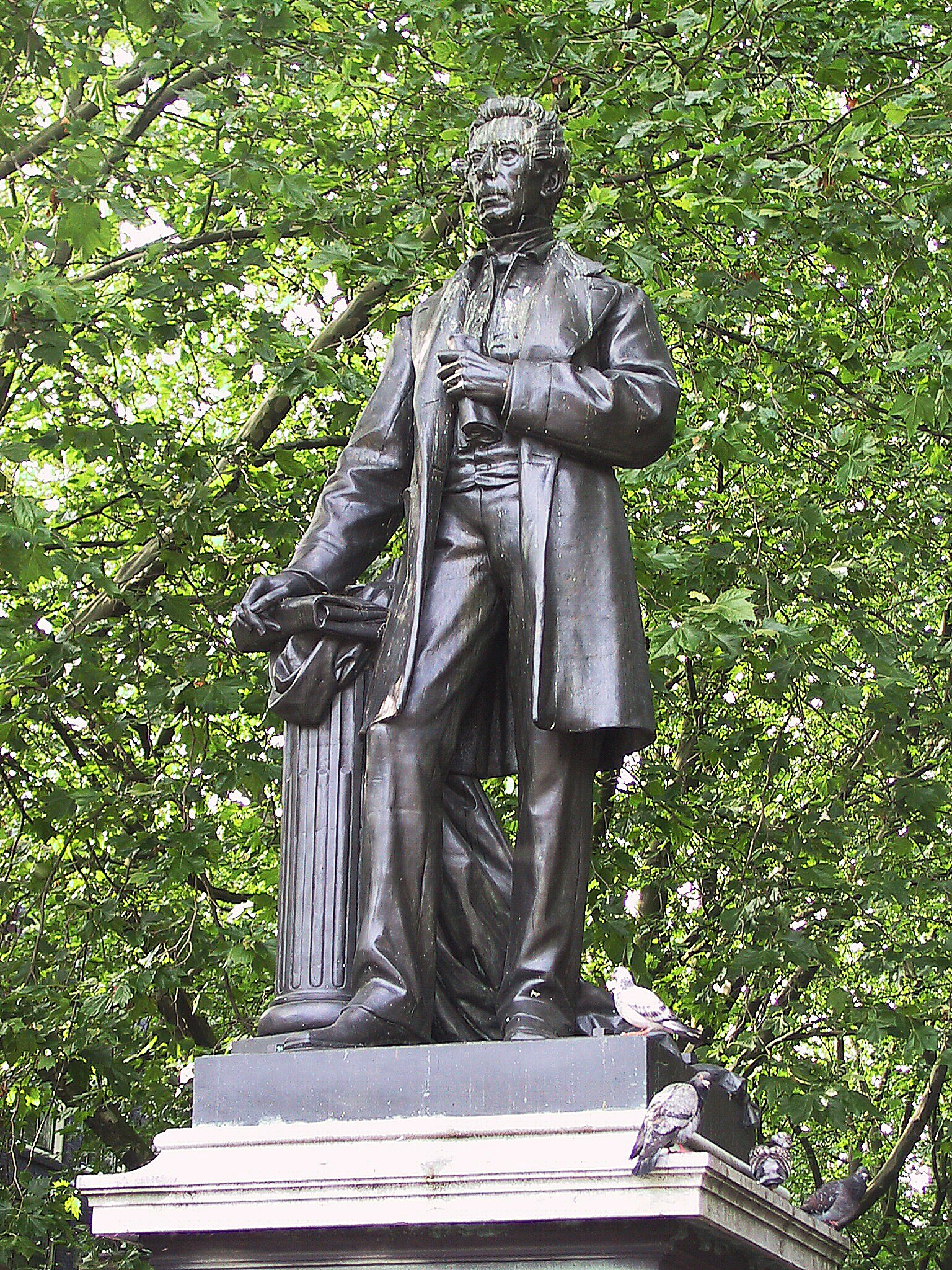<Back to Index>
- Physician and Philosopher Albert Schweitzer, 1875
- Writer John Roderigo Dos Passos, 1896
- Prime Minister of the Netherlands Johan Rudolph Thorbecke, 1798
PAGE SPONSOR


Johan Rudolph Thorbecke (January 14, 1798 – June 4, 1872) was a Dutch politician and statesman of Liberal signature who is considered as one of the most important Dutch politicians of the 19th century. In 1848 he virtually singlehandedly drafted the revision of the Constitution of the Netherlands, giving less power to the king, and more to the States - General of the Netherlands.
Thorbecke was born in Zwolle, and began studying classic literature and philosophy in Amsterdam, studies he finished in Leiden defending a thesis on Asinius Pollio. After studying at several universities in Germany he was appointed at the chair of diplomacy (history of international relations) at the University of Ghent in Belgium, which in those days was part of the Netherlands. Because of the Belgian insurrection in 1830 he had to give up this position, and one year later he was promoted to professor in diplomacy and modern history at the Leiden University.
In 1839, he published his criticisms of the current Dutch constitution in a very detailed study ('Aanteekening op de grondwet'); as a result, he became a well known political figure. Five years later, together with eight other politicians, he formulated a proposal to change the Dutch constitution. The proposal, known as the Voorstel der Negenmannen ("proposition of the nine men"), did not pass through the House of Representatives, the lower house of the Dutch parliament.
Due to the international unrest in 1848, King William II decided to form a committee for revision of the constitution, and Thorbecke was appointed as the head of that committee. The changes, which were virtually all created by Thorbecke, were grudgingly approved by the parliament. The most important changes were those limiting the powers of the monarch, introducing direct elections, establishing liberty of religion, and strengthening the powers of the parliament and the ministers. The new constitution was proclaimed on November 3, 1848.
In 1849, Thorbecke became minister of internal affairs, thereby de facto becoming the first Prime Minister of the Netherlands. During this cabinet, he devised several important laws, most important of which were laws on elections (1850), municipalities (1851) and provinces (1850). His cabinet was forced to resign in 1853 because of the so-called Aprilbeweging ("April Movement"), a Protestant group which protested against re-instituting the Catholic dioceses, which Thorbecke's cabinet had allowed.
On January 31, 1862, Thorbecke again became minister of internal affairs. During his second cabinet, a new law regarding secondary education was among the most important achievements. Important works regarding national transportation were initiated. The cabinet fell on February 10, 1866 and Thorbecke resigned, after a conflict regarding criminal law in the Dutch East Indies. During the periods he was not part of the government, he was still a very influential member of parliament, quite often pointing out to his colleagues and to the ministers the right way to interpret the constitution. On January 4, 1871, Thorbecke led his third and final cabinet. His plans for reforms in the army failed, and he became ill in December of that year. He never fully recovered, and he died at his home in The Hague. Regretted by many, hated by some (he was not a man of concessions), he is nowadays considered a towering figure in the Dutch parliamentary history. There are two statues of Thorbecke (one in Amsterdam and one in Zwolle), and a room in the Dutch parliament building is named after him.
Thorbecke wrote many articles on history and several newspaper articles (especially in the Journal de La Haye)
on topics of the day. He published a study on the philosophy of history
(in German), and all of his speeches in parliament have been published.
